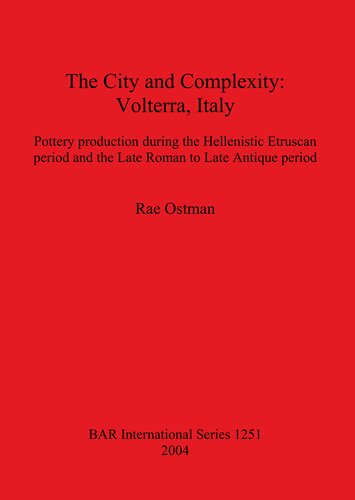

Most ebook files are in PDF format, so you can easily read them using various software such as Foxit Reader or directly on the Google Chrome browser.
Some ebook files are released by publishers in other formats such as .awz, .mobi, .epub, .fb2, etc. You may need to install specific software to read these formats on mobile/PC, such as Calibre.
Please read the tutorial at this link: https://ebookbell.com/faq
We offer FREE conversion to the popular formats you request; however, this may take some time. Therefore, right after payment, please email us, and we will try to provide the service as quickly as possible.
For some exceptional file formats or broken links (if any), please refrain from opening any disputes. Instead, email us first, and we will try to assist within a maximum of 6 hours.
EbookBell Team

4.4
92 reviewsDespite the great fascination that the collapse of past civilizations holds for the public, the process of decreasing social complexity has received surprisingly little attention from archaeologists, especially when compared to the voluminous research on increasing complexity. And most studies of the process have been oriented toward understanding complexity by seeing how it fails, not toward understanding how a different, "simpler" society emerged from a more complex society. But if there are specific motivations and particular processes for decreasing complexity — if "collapse" is a solution rather than a problem — then clearly there is much to be learned from examining the societies that develop during periods of seeming decline. This research study examines how one complex society reorganized to a relatively simple society, recognizing the simultaneously constructive and destructive aspects of the process. The study focuses on the developments during the late Roman Empire through late Antiquity, a time of decreasing social complexity in the ancient Mediterranean world beginning in the late 2nd and continuing to the mid 6th centuries AD, on the basis of a detailed archaeological study of one city and its territory, Volterra, in Tuscany, Italy.